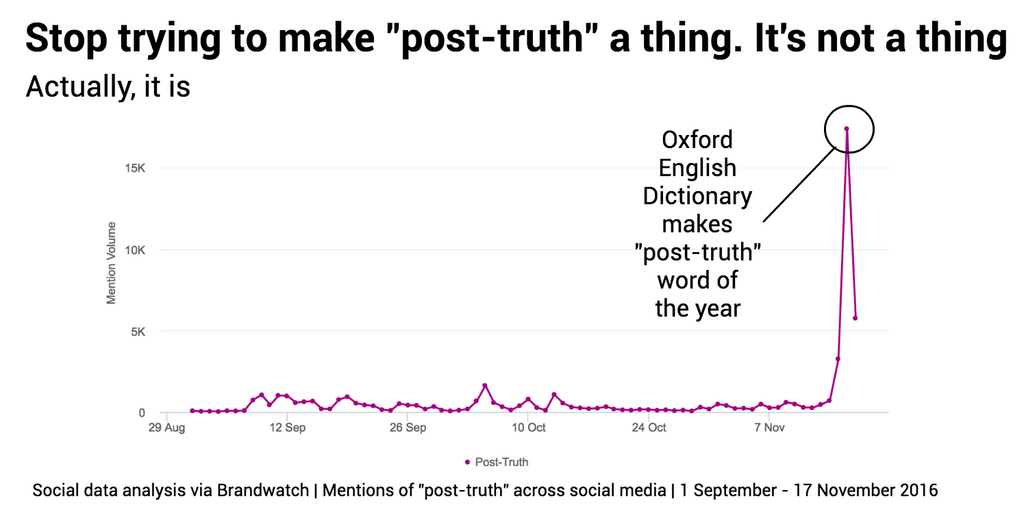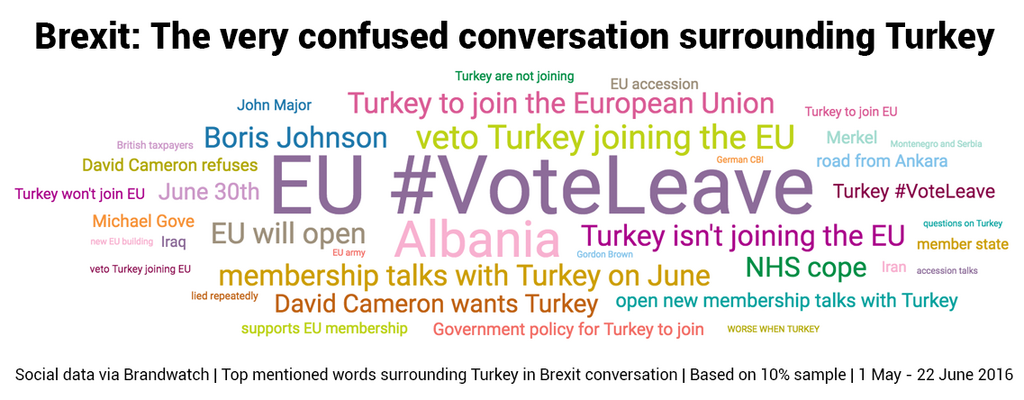Welcome to the third and final edition of our Brandwatch React Brexit data analysis series.
We’ve previously looked at what young people and people outside of the UK are saying about Brexit, but this time the Brandwatch React team wanted to take a look at the role of “post-truth” politics and “fake news” in the conversation.
Earlier in the year, in the wake of the Oxford English Dictionary making “post-truth” word of the year, we discussed living in a post-truth era and whether fake news made Donald Trump President.

Kellyanne Conway’s “alternative facts” comments, as well as Trump’s fondness for the term “fake news”, have become enormous issues for debate online and are significant parts of the post-truth atmosphere in which we supposedly live.
For context, the OED defines post-truth as:
Relating to or denoting circumstances in which objective facts are less influential in shaping public opinion than appeals to emotion and personal belief.
These circumstances weren’t just present in the US Elections.
Lies, damned lies and the EU Referendum.
The EU Referendum campaigns were littered with wild claims about the state of the United Kingdom if it were to stay or leave.
Dubious claims surrounding immigration, the economy, and the NHS appealed to fears surrounding overcrowding, financial instability and healthcare provisions. Figures were inflated, the campaigns’ arguments and numbers clashed, and hundreds talked about being confused and undecided online.
Post-truth, alternative facts, and fake news may now be key parts of our vernacular, but can we measure the effects?
According to YouGov, the top three remembered events in the lead up to the EU Referendum were components of key arguments belonging to Brexiteers.
- The UK sends £350m per week to the EU
- Net migration to the UK had hit 333,000
- Turkey and other candidate countries joining the EU
These controversial topics were hugely salient in the press as well as in personal debates that took place.
We thought we’d focus on two points of contention that plagued the EU Referendum debates – the claims that Turkey could join the EU and that leaving the EU would free up £350m for the NHS.
Taking a look at mentions surrounding these points revealed the extreme divisions in what was believed.
Turkey to join the EU
That Turkey (and various other countries) could be joining the EU, and that citizens of those countries would therefore be allowed free movement into the UK, was a hotly debated topic, despite there not being concrete evidence to prove that it would or wouldn’t happen.
While some believed they could be joining, others were convinced that they wouldn’t be. This topic cloud, generated using Brandwatch Analytics, shows the top mentioned terms surrounding Turkey within the EU Referendum conversation.

The fact that authoritative figures for both the leave and remain campaigns were pointing in different directions only confused things further.



